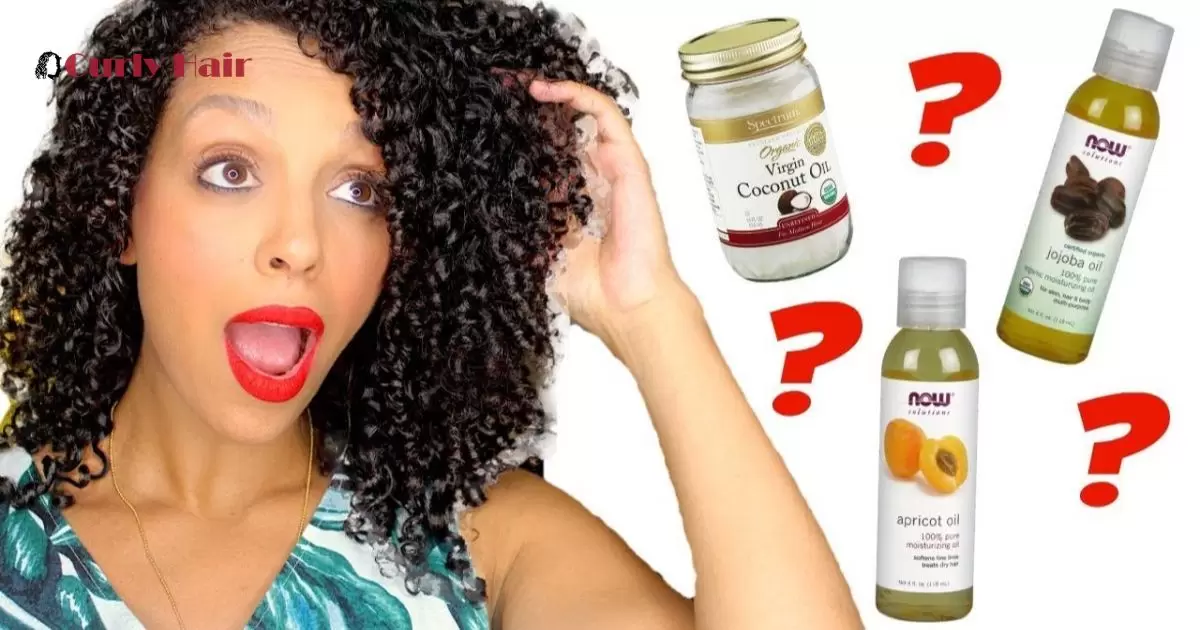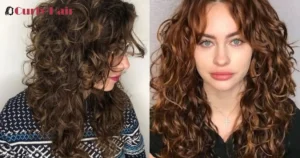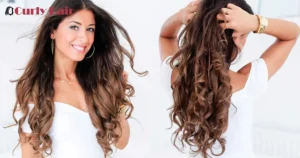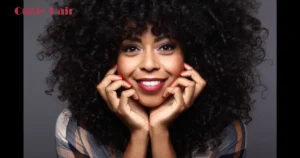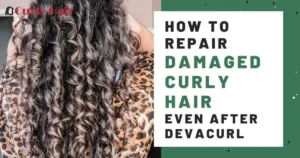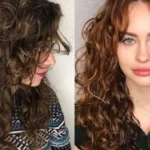Oils can benefit curly hair as they help moisturise and define curls. Some good options include argan, coconut, and olive oils. The oils coat the hair strands, reducing frizz and enhancing shine.
Curly hair can be a blessing and a challenge. Keeping those luscious locks defined and frizz-free is an ongoing battle. Is oil good for curly hair? Many curlies swear by using oils to tame their manes, but is it the solution? Oils can provide much-needed moisture and definition, but the wrong ones could weigh your hair down.
Oils can be a game-changer for curly hair when used correctly. They help lock in moisture, enhance definition, and reduce frizz. Finding the right balance is crucial. Read on to discover the best oils for your curly tresses and learn proper application tips.
Key Takeaways
- Using oil for curly hair can help retain moisture, preventing dryness and breakage.
- Oils aid in defining curls, promoting a more uniform and structured appearance.
- By smoothing the hair cuticle, oils reduce frizz and enhance overall manageability.
- Certain oils possess properties that nourish the scalp, promoting healthy hair growth.
- Experiment with different oils to find the best match for your unique hair type and texture.
The History Of Hair Oils
| Era | Significant Developments |
| Ancient Civilizations | Egyptians used castor and almond oil for hair care. |
| Middle Ages | European nobility favoured scented oils for hair perfuming. |
| 19th Century | Commercial production of hair oils began, popularizing their use. |
| Modern Era | A diverse range of oils available, catering to various hair types and needs. |
Hair oils have a rich history dating back centuries. Ancient civilizations like Egypt and India used oils derived from plants and herbs for hair care. These oils were prized for their moisturizing and nourishing properties, promoting healthy hair growth.
In ancient times, hair oils were often considered a symbol of wealth and status. Royalty and nobility would use luxurious oils infused with exotic ingredients to enhance the beauty of their hair. As time progressed, the use of hair oils became more widespread among the general population, evolving into a common practice for maintaining healthy hair and scalp.
Why You Should Use Hair Oils On Curly Hair?
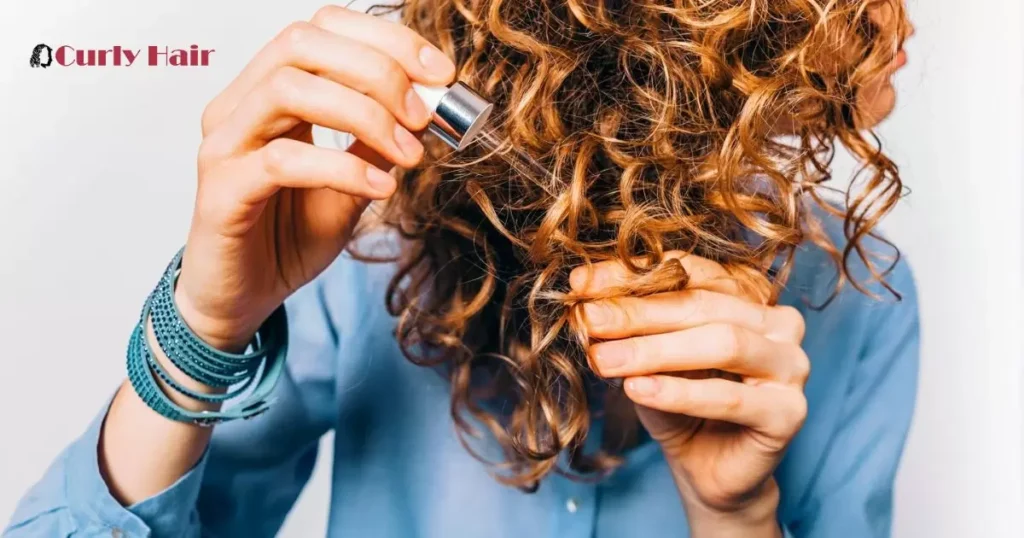
Using hair oils on curly hair is essential for maintaining moisture and reducing frizz. These oils penetrate the hair shaft, providing hydration and enhancing the natural curl pattern. They act as a protective barrier, preventing moisture loss and leaving the hair soft and manageable.
Hair oils nourish the scalp, promoting healthy hair growth and reducing dandruff. They can be used as pre-shampoo treatments or leave-in conditioners to maximize their benefits. With regular use, hair oils can make curly hair more attractive, making it more vibrant, defined, and healthy.
The Benefits Of Hair Oils For Curls
Hair oils offer a plethora of benefits for curls, helping to retain moisture and prevent frizz. These oils penetrate the hair shaft, nourishing it from within and promoting healthy growth. By sealing in moisture, they enhance the natural curl pattern, providing definition and bounce.
Detangle Hair
Hair oils make detangling curls easier by providing slip and reducing friction between strands. They coat the hair, making it smoother and less prone to tangling, resulting in less breakage. When applied before detangling, oils help gently separate knots and knots, minimizing damage and preserving hair health.
Strengthen The Strands
Hair oils play a crucial role in strengthening the strands of curly hair, reducing breakage and promoting overall hair health. These oils penetrate deep into the hair shaft, fortifying it from within and making it more resilient to damage. Regular application of hair oils can help prevent split ends and breakage, resulting in stronger, healthier curls that are less prone to damage.
Moisture Retention
Hair oils are essential for curls as they aid in moisture retention, preventing dryness and brittleness. These oils create a protective barrier around the hair shaft, locking in hydration and preventing moisture loss. With regular use, curls remain soft, supple, and less prone to frizz, ensuring a vibrant and healthy appearance.
Shine & Softness
Hair oils contribute to the shine and softness of curls by deeply moisturizing the hair strands. These oils coat the hair cuticle, smoothing it out and imparting a glossy sheen. With regular application, curls become noticeably softer to the touch, enhancing their overall texture and appearance.
The Science Behind Curly Hair Oiling
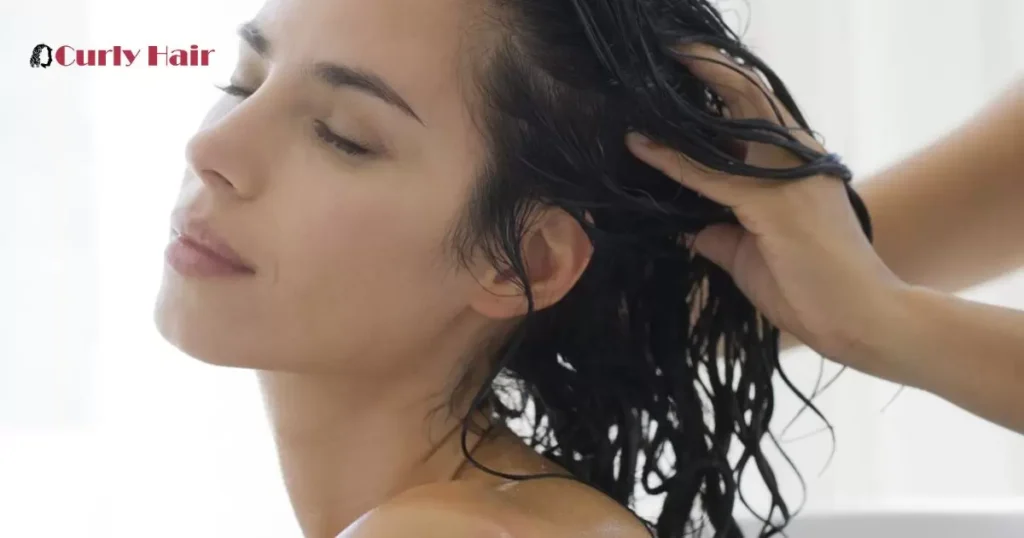
Understanding the science behind curly hair oiling involves recognizing the unique structure of curly hair strands. The twists and turns of curly hair make it more prone to dryness and breakage, requiring extra moisture. Hair oils work by penetrating the hair shaft, replenishing lost moisture and nourishing the hair from within. Oils help to smooth the hair cuticle, reducing frizz and enhancing the natural curl pattern.
When applied to curly hair, oils create a protective barrier that locks in moisture and shields the hair from environmental stressors. This barrier not only prevents moisture loss but also helps to maintain the integrity of the hair shaft, reducing the risk of damage and breakage. By incorporating oils into a regular hair care routine, individuals with curly hair can enjoy healthier, more resilient curls with improved shine and manageability.
Is Oil Good For Curly Hair Growth?
For curly hair growth, oils play a crucial role in maintaining a healthy scalp environment. A nourished scalp promotes hair follicle health, encouraging strong and vibrant hair growth. Certain oils, such as castor oil and rosemary oil, are believed to stimulate circulation to the scalp, further promoting hair growth.
Oils help to prevent breakage and split ends, allowing curls to grow longer and healthier. By moisturizing the hair shaft, oils keep the hair flexible and less prone to damage, resulting in improved length retention over time. Regular use of oils can lead to stronger, more resilient curls that continue to thrive and grow.
Choosing The Right Oils For Your Curls
When selecting oils for your curls, consider their weight and absorption properties. Lighter oils like argan and jojoba are suitable for fine or low porosity curls, as they won’t weigh them down. For thicker or high porosity curls, opt for heavier oils like coconut or avocado for deeper hydration.
It’s essential to experiment and find the right balance to avoid greasiness or buildup. Also, pay attention to the ingredients in the oil to ensure they align with your hair’s needs. Look for natural oils free from silicones, sulfates, and other harsh chemicals that can strip the hair of its natural oils.
Consider oils enriched with vitamins and antioxidants to provide additional nourishment and protection for your curls. By choosing the right oils tailored to your hair type and preferences, you can maximize the benefits and achieve healthier, more vibrant curls.
Pre-Oiling Preparation For Healthy Hair
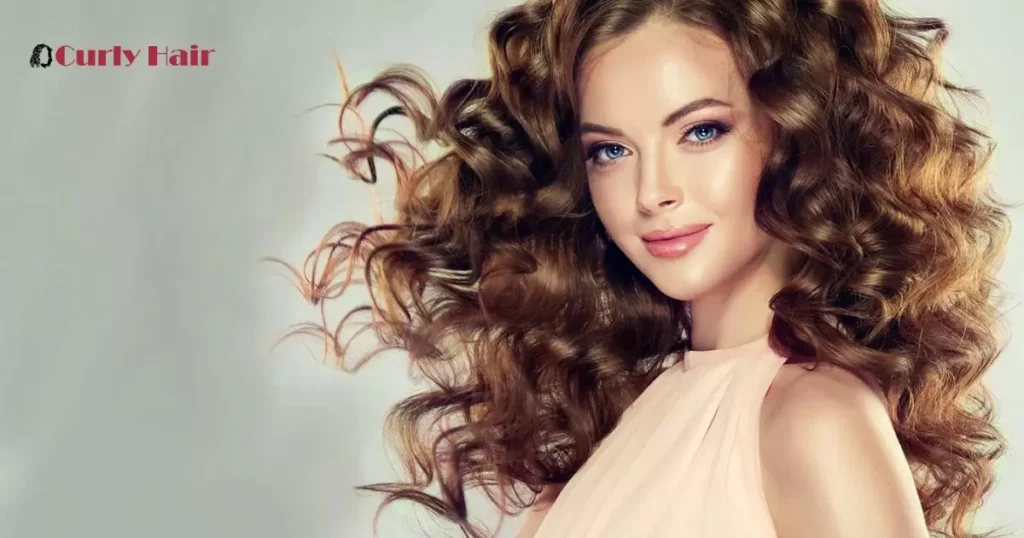
Preparing your hair before oiling is essential for maximizing the benefits of hair oils. Start by detangling your hair gently to avoid breakage and ensure even distribution of the oil. It’s also helpful to cleanse your scalp beforehand to remove any buildup, allowing the oil to penetrate deeply.
Once your hair is detangled and your scalp is clean, section your hair into smaller parts for easier application of the oil. Use your fingertips to massage the oil into your scalp, stimulating blood circulation and promoting healthy hair growth. Take your time to ensure that every strand is coated with oil, paying special attention to the ends to prevent dryness and split ends.
Step-By-Step Guide To Oiling Your Curly Hair
- Start by selecting a nourishing oil suited to your hair type and preferences, such as coconut or argan oil.
- Begin with dry hair and section it into manageable parts for thorough application.
- Pour a small amount of oil into your palms and rub them together to warm the oil.
- Gently massage the oil into your scalp using circular motions to stimulate blood circulation.
- Continue applying the oil along the length of your hair, focusing on the ends where dryness tends to occur.
- Once fully saturated, leave the oil on for at least 30 minutes or overnight for deep conditioning.
What Is Porosity?
Understanding hair porosity is crucial for effective hair care routines. Porosity refers to the hair’s ability to absorb and retain moisture. Low porosity hair has a tightly closed cuticle layer, making it resistant to moisture absorption. High porosity hair, on the other hand, has a more open cuticle, leading to rapid moisture loss. Determining your hair’s porosity can help you select the right products and techniques to keep it healthy and hydrated.
Factors such as genetics, heat styling, and chemical treatments can affect hair porosity. To determine your hair’s porosity, conduct a simple porosity test at home. By understanding your hair’s porosity level, you can tailor your hair care routine to address its specific needs, ensuring optimal hydration and overall hair health.
How Do You Measure Porosity?

To measure porosity, observe how quickly your hair absorbs water when wet. Low porosity hair tends to repel water, taking longer to saturate. High porosity hair absorbs water quickly but also loses it rapidly, feeling dry.
Another method is the float test, place a strand of clean hair in a bowl of water. If it floats, it’s low porosity; if it sinks, it’s high.
What About Hair Density?
Considering hair density is crucial when selecting the right hair oil for curls. Thicker, denser curls may benefit from heavier oils like coconut or castor oil, which provide ample moisture and nourishment. However, individuals with finer curls should opt for lighter oils such as argan or jojoba oil to prevent weighing down the hair.
Choosing the appropriate oil based on hair density ensures optimal results, enhancing the health and appearance of curls without causing any unnecessary buildup or greasiness. Experimenting with different oils allows individuals to find the perfect balance that suits their unique hair type and preferences.
How Do You Use Hair Oil On Curly Hair?
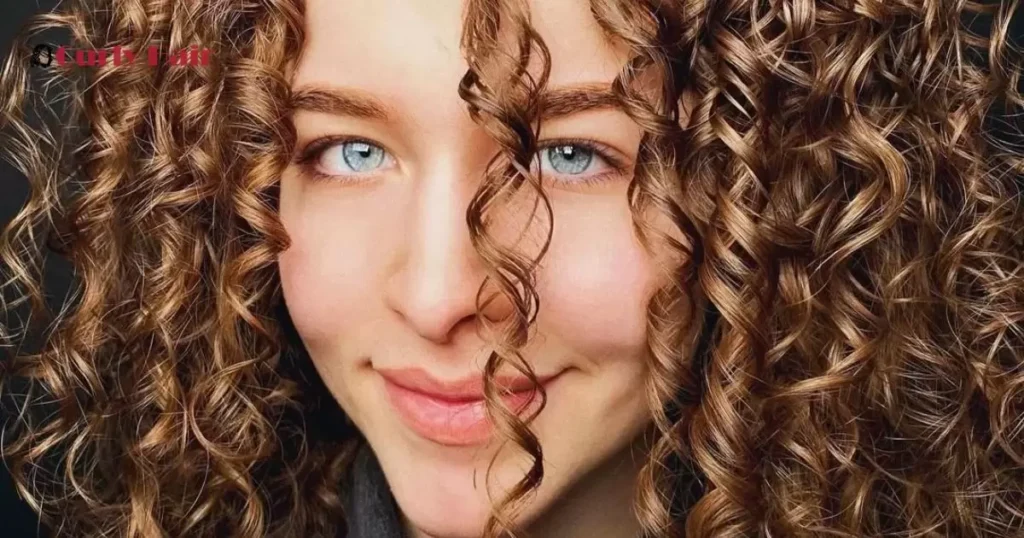
To effectively use hair oil on curly hair, start by applying a small amount to your palms. Rub your hands together to evenly distribute the oil. Then, gently scrunch the oil into your curls, focusing on the mid-lengths and ends. Avoid applying oil directly to the scalp to prevent weighing down the roots.
For best results, use hair oil on damp or dry hair. If applying to damp hair, do so after washing and conditioning. Alternatively, use it as a finishing touch on dry hair to tame frizz and add shine. Experiment with different oils to find the one that works best for your hair type and texture.
Frequently Asked Questions
Can I put oil in my curly hair every day?
Yes, you can put oil in your curly hair every day, but it’s best to use it in moderation to prevent buildup and weight down.
Does oil make curls last longer?
Yes, oil can help make curls last longer by providing moisture and definition to the hair strands.
How to oil curly hair overnight?
To oil curly hair overnight, apply a small amount of hair oil to the mid-lengths and ends before wrapping hair in a silk scarf or bonnet to protect it while you sleep.
Conclusion
In conclusion, the question is oil good for curly hair is definitively answered: yes. Hair oils offer a multitude of benefits for curls, from moisturizing and nourishing to enhancing shine and softness. By incorporating the right oils into your hair care routine, you can achieve healthier, more manageable curls with enhanced definition and vitality.
Remember to choose oils that suit your hair type and texture, and use them correctly to maximize their effectiveness. With proper care and attention, oil can be a valuable ally in your journey to beautiful, luscious curls.
